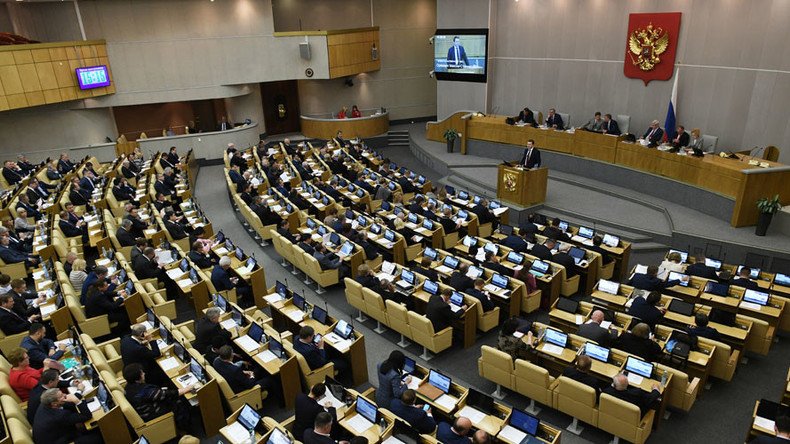Duma approves unified register of corruption officials

Russian MPs have passed a bill ordering a unified list of all ex-officials who lost their posts because of corruption scandals.
The bill was prepared and drafted by the Russian Labor Ministry in early 2015, and received approval from the government in August of 2016. It was cleared by the Russian lower house in its third and final reading, and is expected to come into force from January 1, 2018.
Once this happens, Russian state agencies will have to create and maintain a nationwide list of officials convicted of corruption crimes or fired over “loss of trust” caused corruption scandals.
The main purpose of the move is to make it more difficult for those tarnished by corruption to receive a new job in a state agency or state-owned corporation.
The new rules would apply to civil servants at the federal and municipal levels, military personnel, law enforcement agents, state corporations, and other state organizations, such as the Central Bank.
The existing Russian Law on State Service allows the dismissal of officials who make decisions about funds and budgets when they are involved in corruption or fail to properly deal with conflicts of interest, leading to a “loss of trust.”
However, the sponsors of the bill explained that a unified list is necessary because officials fired “because of loss of trust” might not disclose the real reason for their sacking when looking for another job.
The current practice of registering the employment history in a ‘labor book’ – a paper document that is physically carried by an employee from one employer to another – also allows for various violations.
A unified nationwide register of those fired because of corruption would allow managers in government agencies and corporations to reject such candidates, should they attempt to re-enter the civil service.
An explanatory note attached to the bill states that between 2012 and 2015, about 1,200 people lost their jobs in Russia for violating anti-corruption rules or restrictions. A typical example of such a development was the 2016 sacking of former Kirov Region Governor Nikita Belykh who was caught red-handed accepting a bribe from a local businessman.













